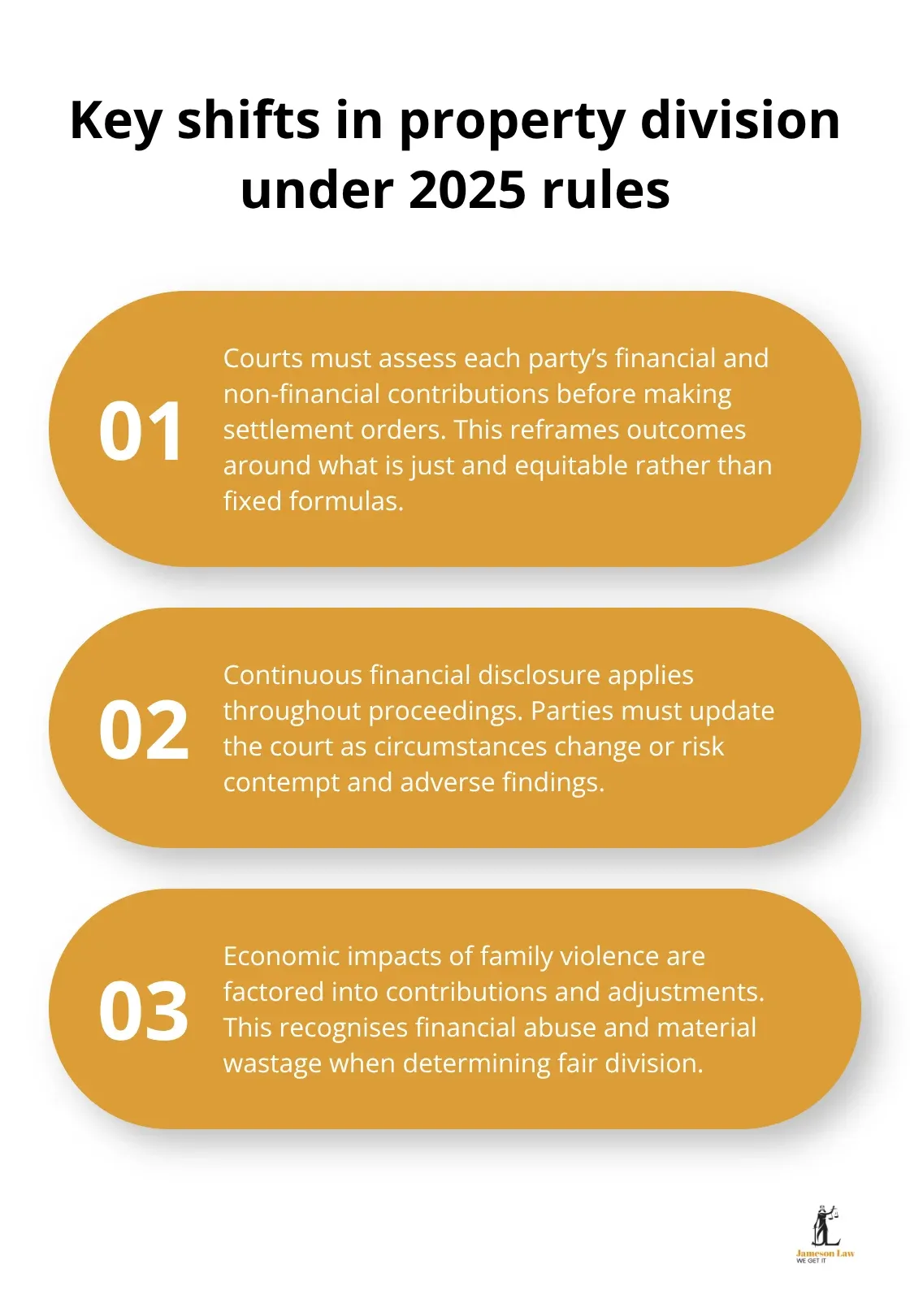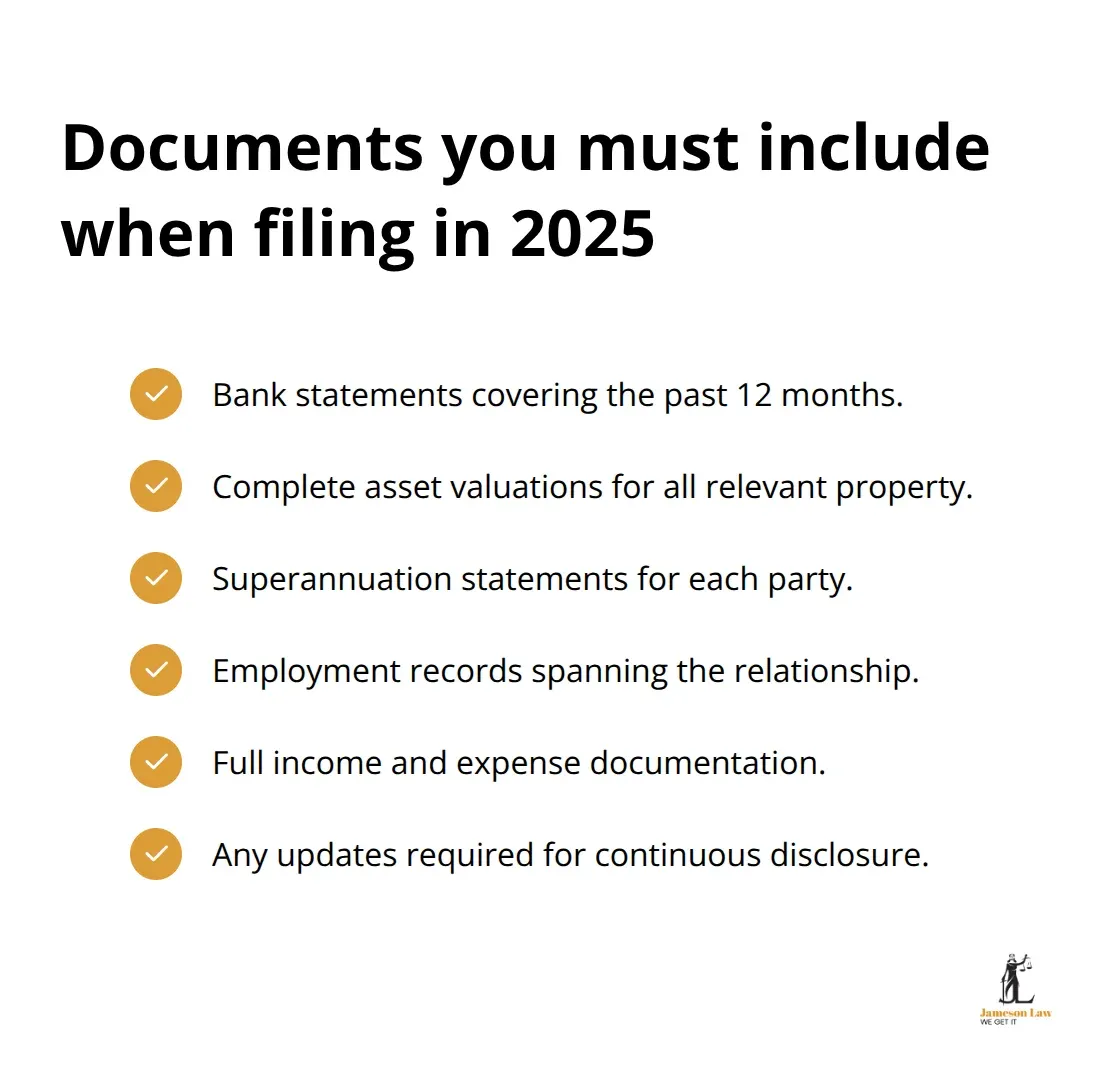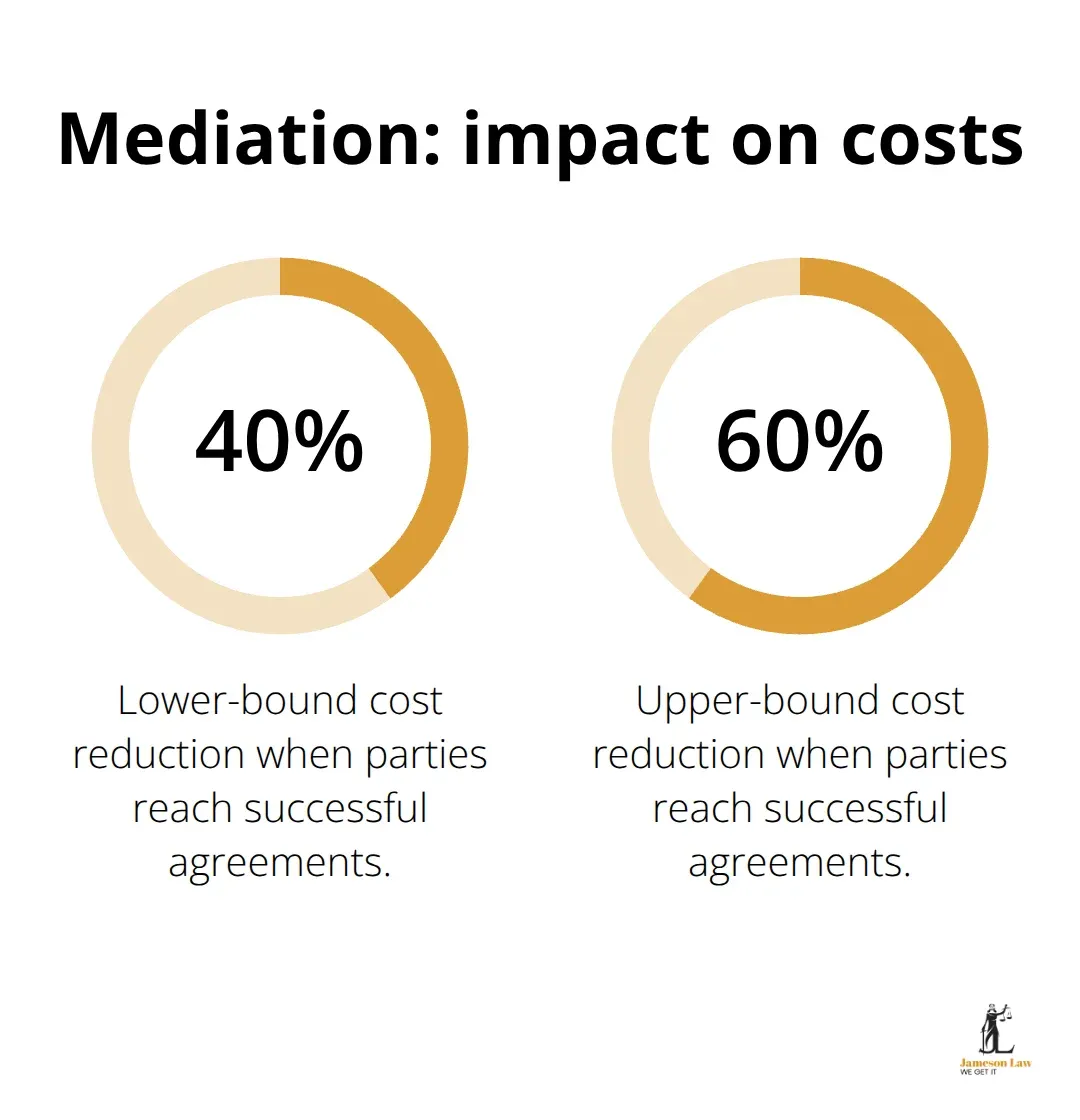Australian families face significant changes this year as new Family Law Regulations 2025 reshape how courts handle property settlements, child support, and parenting arrangements.
We at Jameson Law have compiled this comprehensive guide to help you understand these updates and their impact on your family’s legal matters. The changes affect everything from filing procedures to dispute resolution timelines.
What Changes in 2025 Family Law
The Family Law Amendment Act 2024 transforms how Australian courts handle relationship breakdowns from June 10, 2025. Economic and financial abuse now receive explicit recognition as family violence, which allows courts to consider the financial autonomy of affected parties when they make property orders. This change directly impacts how judges assess contributions and divide assets between couples who separate.
Property Settlement Framework Revolution
Courts must now assess each party’s contributions before they make property settlement orders, which replaces the previous system with a just and equitable approach. The new framework requires judges to consider material wastage of property and the economic impact of family violence when they determine financial contributions. Couples who separate face elevated financial disclosure obligations that move from court rules into the Family Law Act itself, with serious penalties for non-compliance (including contempt of court proceedings). The duty of disclosure becomes continuous throughout proceedings, which means parties must share relevant financial information as circumstances change. Courts gain authority to make specific orders about companion animals without they allow shared custody scenarios, which treats pets as property rather than family members.
Streamlined Court Processes and Requirements
Family dispute resolution certificates become mandatory for parenting applications, with specific exemptions only for urgent cases that involve safety concerns. Divorce applications no longer require reconciliation certificates if marriages lasted less than two years, which removes bureaucratic barriers for shorter relationships. The less adversarial approach allows courts to manage proceedings more effectively, particularly in cases that involve family violence where traditional adversarial methods create additional stress.
Enhanced Court Access and Jurisdiction
State courts can now receive prescribed jurisdiction to make parenting orders, which increases access to family law services at the local level rather than forces families into federal court systems. This expansion means families can access specialised family law expertise closer to home (reducing travel costs and time commitments). The changes create a more accessible framework that addresses the practical challenges families face when they navigate complex legal proceedings.
These regulatory shifts establish the foundation for how families must approach their legal obligations and rights under the new system.
Understanding Your Rights and Obligations
Property Division Under the New Framework
Your property rights change dramatically under the 2025 amendments, with courts now required to assess contributions before they make settlement orders. The new just and equitable test means judges must evaluate your financial and non-financial contributions first, then consider factors like family violence impacts and property wastage.
Courts will examine bank statements, asset valuations, and employment records that span your entire relationship when they determine your contribution percentage. You must provide continuous financial disclosure throughout proceedings, which includes updates when circumstances change, or face contempt of court charges.

The elevated disclosure obligations mean you cannot hide assets or income as easily, and violations carry serious penalties that can affect your final settlement outcome. Courts now consider the economic impact of family violence when they assess financial contributions, which lowers the threshold for claims related to such abuse.
Child Custody and Parenting Orders
Family dispute resolution certificates become mandatory for all parenting applications except urgent safety cases, which means you must attempt mediation before court proceedings can begin. Courts now prioritise the welfare and attachment of children when they make custody decisions, with expanded consideration of economic impacts from family violence on parenting arrangements.
State courts gain jurisdiction to make parenting orders, which gives you access to family law services closer to home rather than forces federal court appearances. Your parenting agreement must address how decisions about education, healthcare, and residence will be made, with courts favouring arrangements that maintain meaningful relationships with both parents unless safety concerns exist.
Understanding parental responsibility becomes crucial as these arrangements define your ongoing obligations and decision-making authority regarding your children’s welfare.
Spousal Maintenance Requirements
Courts must now consider the economic effects of family violence when they determine spousal maintenance orders. The new framework requires judges to assess how financial abuse or economic control affected each party’s capacity to support themselves after separation.
Your maintenance claim can include consideration of career disruption caused by family violence, lost superannuation contributions, and reduced earning capacity from economic abuse. The elevated financial disclosure duties mean both parties must provide comprehensive documentation of income, expenses, and financial capacity throughout proceedings.
These enhanced rights and obligations create a foundation that requires careful navigation through the updated court procedures and documentation requirements.
How Do You File Under New Family Court Rules
Updated Filing Requirements and Documentation Standards
The Family Law Regulations 2025 took effect from June 10, 2025, with updated court forms that demand comprehensive financial documentation from the start of proceedings. You must provide bank statements that cover the past 12 months, complete asset valuations, superannuation statements, and employment records that span your entire relationship when you file property settlement applications.

New Section 60I certificates from Family Dispute Resolution Practitioners become mandatory for all certificates that practitioners issue. Courts impose serious penalties for incomplete financial disclosure, with financial disclosure now being mandatory rather than optional, including severe penalties for non-compliance such as fines and imprisonment.
Mandatory Dispute Resolution Requirements
Family dispute resolution certificates become compulsory for all parenting applications, with specific exemptions only for urgent safety cases or family violence situations. The new framework requires you to complete mediation before court proceedings can begin, which typically adds 3-6 months to your timeline but reduces overall legal costs by 40-60% when parties reach successful agreements.

You must obtain your certificate from an accredited family dispute resolution practitioner who will assess whether mediation remains appropriate for your circumstances. Courts will not accept applications without valid certificates unless you can demonstrate urgent safety concerns or family violence that makes mediation inappropriate.
State Court Jurisdiction and Processing Times
State courts now have prescribed jurisdiction for parenting orders, which means local court access and faster processing times of 8-12 weeks compared to 16-20 weeks in federal circuits. This expansion allows families to access specialised family law expertise closer to home rather than travel to federal court locations.
Local magistrates receive additional training to handle complex parenting matters, and state courts adopt the same procedural standards as federal family courts. The change reduces costs for families who previously faced travel expenses and accommodation costs when they attended federal court hearings in distant locations.
Less Adversarial Court Processes
Court processes adopt a less adversarial approach in family violence cases, with judges who manage proceedings more actively to reduce stress and expedite resolution. Judges can now limit cross-examination, control the presentation of evidence, and direct proceedings to focus on child welfare rather than allow prolonged disputes between parties.
Courts prioritise settlement conferences and judicial mediation before they schedule final hearings (particularly in cases that involve children or family violence). This approach reduces the emotional trauma that traditional adversarial proceedings create while maintaining access to judicial intervention when negotiation fails.
Final Thoughts
The Family Law Regulations 2025 represent the most significant transformation to Australian family law in decades. Economic and financial abuse now receive explicit recognition as family violence, while courts must assess contributions before they make property settlement orders. Mandatory financial disclosure obligations move from court rules into the Family Law Act itself (creating serious penalties for non-compliance).
These changes affect every aspect of family law proceedings, from filing requirements to dispute resolution timelines. Family dispute resolution certificates become compulsory for parenting applications, while state courts gain jurisdiction to handle parenting orders closer to home. The less adversarial approach reduces stress for families, particularly those affected by family violence.
Professional expertise becomes essential when you navigate these complex regulatory changes. We at Jameson Law provide specialised family law services to help families understand their rights and obligations under the new framework. The regulatory landscape continues to evolve, which makes professional guidance vital for protecting your interests and those of your children during this transitional period.
Disclaimer
The above is general legal information and should not be considered legal advice. You should speak with one of our lawyers for legal advice tailored to your specific legal matter. The courts and tribunals deal with matters on a case-by-case basis. Our lawyers are based in Parramatta and Sydney, we cannot assist with legal advice in a range of jurisdictions whether in Melbourne, Brisbane, Adelaide or Perth.













